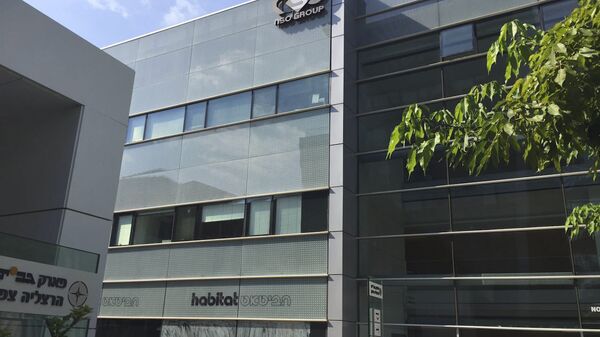The Tel Aviv District Court has rejected a petition filed by Amnesty International to suspend Israeli spyware firm NSO Group’s export license over allegations that the company's technology is used to target journalists, lawmakers and activists around the world, including one of the NGO's employees, according to The Times of Israel.
The court ruling, issued on Sunday and published on Monday, stated that lawyers for the human rights watchdog had failed to provide sufficient evidence “to prove the claim that an attempt was made to track a human rights activist by trying to hack his cellphone” or that the hacking was conducted by the NSO Group.
“Granting a license is done after the most rigorous process and also after granting the permit, the authority conducts oversight and close inspection, as necessary,” the court said, cited by the outlet.
The court added, however, that NSO’s export license could be suspended or canceled if it was proved that human rights had been violated.
In a Monday statement, the NSO Group welcomed the court’s decision, saying, “We are a global leader in commitment to the proper use of technology and respect for human rights”.
“The judgment is irrefutable evidence that the regulatory framework in which we operate in [sic] is of the highest international standard,” the spyware firm reportedly said. “Now that the court’s decision has shown that our industry is sufficiently regulated, the focus should turn to what answer those who seek to criticise NSO have to the abuse of encryption by nefarious groups”.
The company said that it would continue to provide technology to governments and intelligence agencies around the world, claiming that its purpose “is to save human lives”, according to The Times of Israel.
A spokesperson for Amnesty International, Israel Gil Naveh, said that the group was disappointed by the court’s rejection of the petition but not surprised.
“It’s been a longstanding tradition for the Israeli courts to be a rubber stamp for the Israeli Ministry of Defense,” Naveh said in a statement, cited by Courthouse News Service.
Naveh added that the human rights watchdog does not know what evidence NSO or the Israeli Defence Ministry presented to the court, as the hearings were closed, adding, “Even if we knew, we were not able to talk about it”.
In 2018, Amnesty International claimed that one of its personnel was targeted by NSO malware, insisting that a hacker had tried to gain access to the activist’s smartphone using a WhatsApp message as bait.
The organization claimed that the company’s Pegasus software, a tool capable of gaining access to a smartphone camera and microphone turning the device into a 'pocket spy', has been repeatedly used to target activists, journalists, and lawmakers in countries such as Mexico, Saudi Arabia and the United Arab Emirates.



